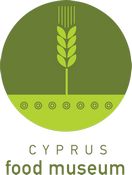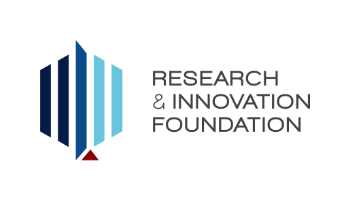Exploring the entangled dynamics of food culture, economy and society in late Ottoman and Colonial Cyprus
Food as a Lens on Modern Life
A research project by the Cyprus Food and Nutrition Museum, aiming to explore diverse aspects of Cyprus’s food history from the late Ottoman period to the end of British rule (late 18th century–1960).

The research project Foodways to Modernity: Exploring the entangled dynamics of food culture, economy and society in late Ottoman and Colonial Cyprus (FoodCultCy) has secured funding from the Research and Innovation Foundation (RIF) under the competitive call Excellence Hubs. The project is implemented by the Cyprus Food and Nutrition Museum from June 2025 to May 2027, under the coordination and scientific direction of Dr. Petroula Hadjittofi.
For the first time, this project places food at the centre of inquiry into the multifaceted transformations—political, economic, social, and cultural—that mark Cyprus’s path to modernity during the 19th and 20th centuries. Through the documentation, study, and analysis of unpublished primary sources—written accounts, visual materials, objects of material culture, and oral testimonies—and by adopting a holistic, interdisciplinary approach, the project explores the following interconnected thematic areas:
1. Food and Dietary Practices
A core objective is to document evolving dietary choices among different social groups in Cyprus during the period under study. The research investigates how Western culinary culture and the standardization of food production and supply influenced local food practices. Additionally, by examining 19th-century dietary patterns, the project seeks to shed light on the recent—and largely underexplored—history of the Mediterranean diet in Cyprus, highlighting characteristics unique to the island or to specific social and ethnic communities.
2. Food and Economy
Another key focus is the evolution of food production and supply mechanisms, their connection to local economic developments, and their impact on dietary patterns across the Cypriot population. The research examines internal and external trade networks, as well as various forms and scales of local food production—from family subsistence and small-scale artisanal workshops to the early food industries established during British rule. The Cypriot food industry, its characteristics, its development in relation to state policies, and its contribution to the emergence of local entrepreneurship are also central areas of analysis.
3. Food and Culture
As food production and consumption are key cultural expressions, the project explores perceptions, moral values, behaviours, rituals, etiquette, norms, and restrictions (religious or otherwise), to understand how food functioned symbolically as a marker of identity—whether age-based, gendered, social, religious, ethnic, or even national. This thematic area also includes an examination of the material culture of food, such as spaces of production and consumption, utensils, tools, furniture, and infrastructure.
In addition to scientific research, the project will include outreach activities targeting both the academic community and the general public, aiming to disseminate research findings and raise awareness on issues related to food and nutrition.
At the same time, two innovative open-access digital applications are planned, drawing on elements of Cyprus’s food heritage to promote digital tourism on the island. The first application, based on the use of QR codes, will enrich and enhance the visitor experience in a museum space related to food. The second will present a thematic digital trail, featuring selected stops directly linked to the modern history of food in Cyprus.
Consortium and Research Collaborators
The Cyprus Food and Nutrition Museum is the lead institution for the implementation of the project. Collaborating partners include:
-
University of Cyprus, with a scientific team composed of Professor Emerita Euphrosyne Rizopoulou-Egoumenidou and Special Research Scientist Evangelia Matthopoulou, under the supervision of Associate Professor Athanasios Vionis;
-
Cyprus University of Technology, with a team comprising Research Associates Christos Andreev and Adam Lantos, under the supervision of Associate Professor Antonis Theocharous and Lecturer Petros Kosmas;
-
The Department of Antiquities of the Deputy Ministry of Culture, represented by Senior Officer Efthymia Alpha.
The project also benefits from the contribution of external research collaborators:
Professor Antonia Matala of Harokopio University, as well as a team of nutritionists from the European University Cyprus, including Assistant Professor Irene Tzanetakou, Lecturer Elena Hadjimbei, and Special Scientist Vana Yiangou.
See the Press Release for the project launch here.

